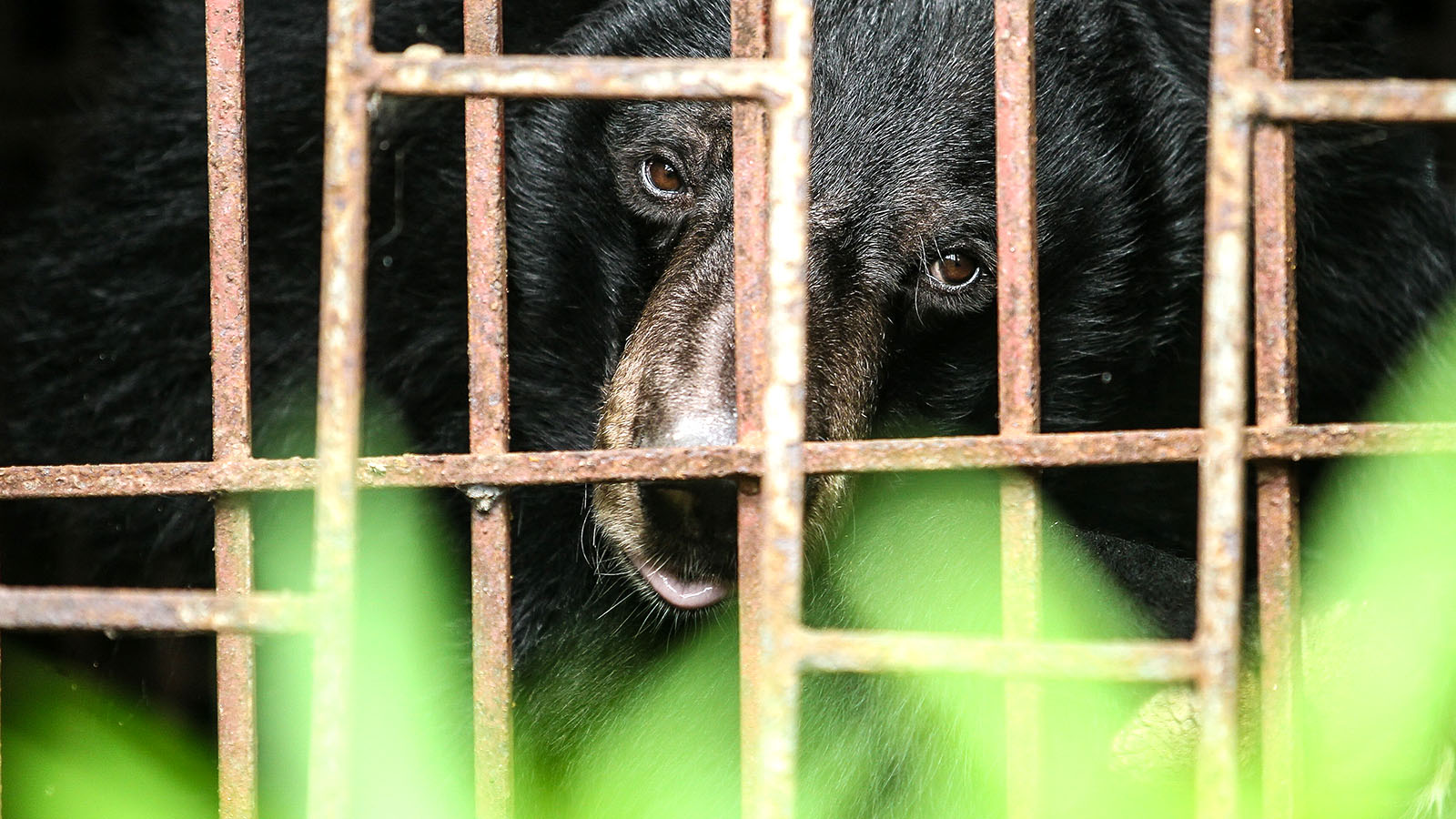Around ten years ago, bear bile became a hunted-for item on the black market in Vietnam due to its rumored medicinal properties.
The craze for the digestive fluid – produced by the liver and stored in the bear’s gallbladder – led to the mushrooming of bile bear farms across Vietnam, many of which were household facilities with poor hygiene and upkeep.
The plunge in bile prizes a few years later meant thousands of such bears have since faced deteriorating living conditions and been left to starve in their cages, or even killed for their meat, teeth, claws and skin.
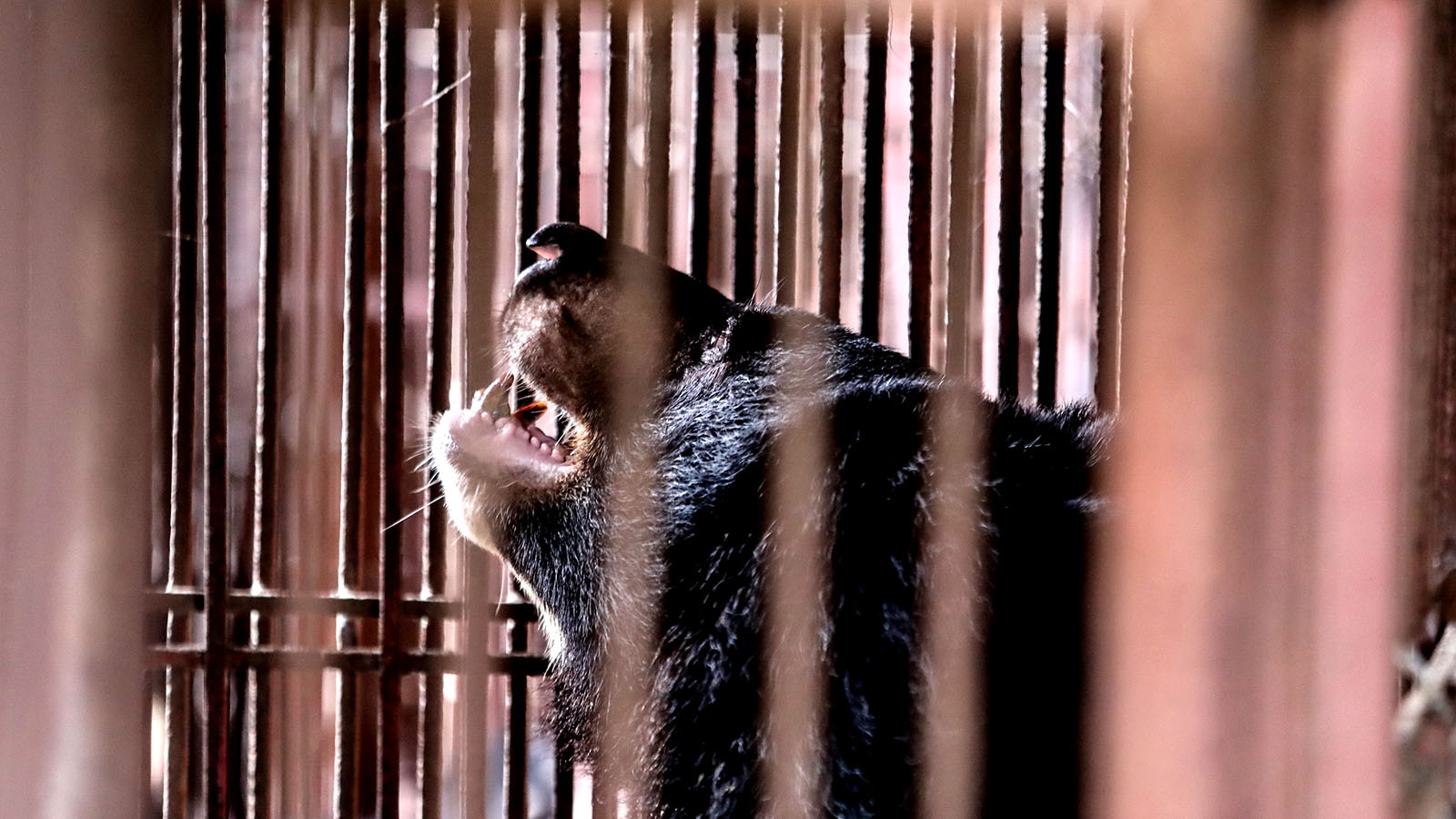 |
| A moon bear is kept in a cage at a bile bear facility in Vietnam. Photo: Tuoi Tre |
Since then, the arduous fight to rescue bile bears in Vietnam has been going on with the support of international non-governmental wildlife protection organizations.
Bear sanctuaries, such as one in Tam Dao District in Vinh Phuc Province, have sprung up to accommodate the increasing number of bears being rescued from their captivity.
“The hotline of Tam Dao Bear Sanctuary is available 24/7, and animal protectors are ready to respond at any time to reports of bears that need rescuing no matter how far away they are, for we know that any second of delay could spell death for these animals,” said Dr. Tuan Bendixsen, country director of Animals Asia in Vietnam.
Animals Asia Foundation is a Hong Kong-based charity that seeks to end cruelty to animals in Asia.
As of early 2015, there were only a few hundred wild bears left in Vietnam, while 1,245 were held in captivity at 430 facilities across the country, according to reports by Vietnam’s Forest Protection Department.
Their bile is harvested using several invasive techniques that may leave a permanent fistula. Many have died due to stress or infection from the unskilled surgeries.
Some bears are permanently disabled at the time of rescue, and can never be released into the wild again.
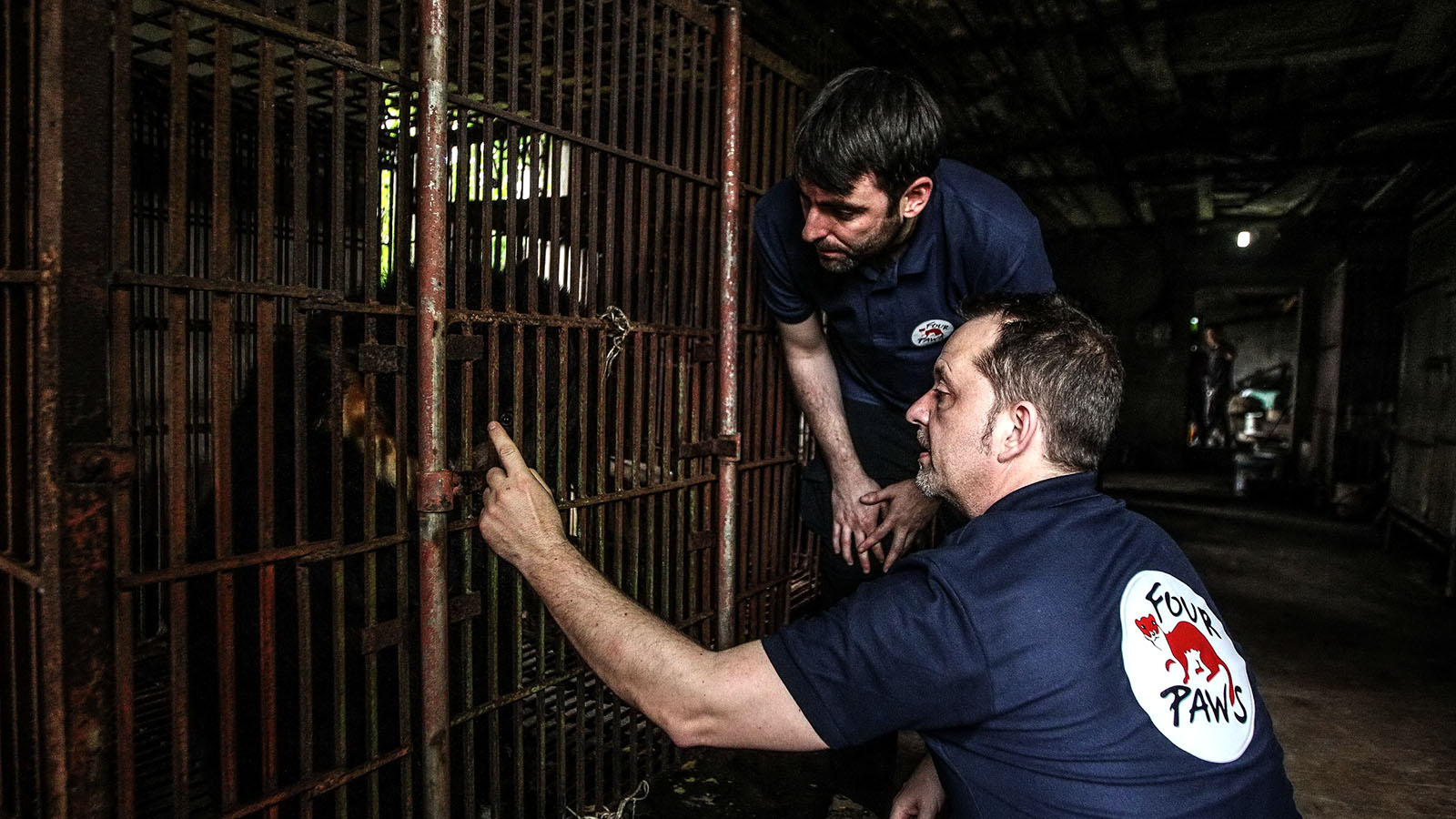 |
| Two experts from the FOUR PAWS wildlife protection organization inspect a captive moon bear in Vietnam. Photo: Tuoi Tre |
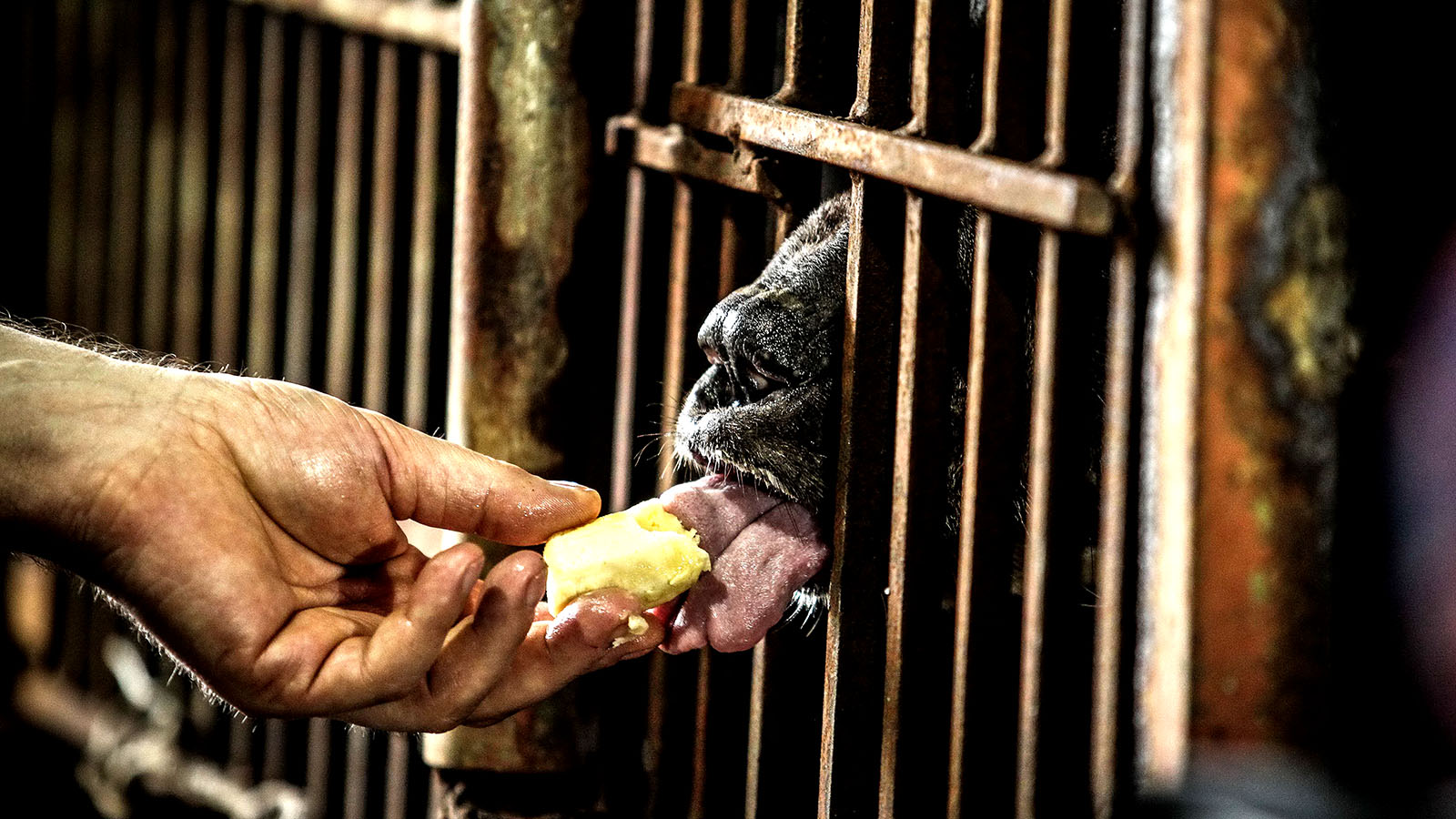 |
| A captive moon bear is fed through the gaps of a cage. Photo: Tuoi Tre |
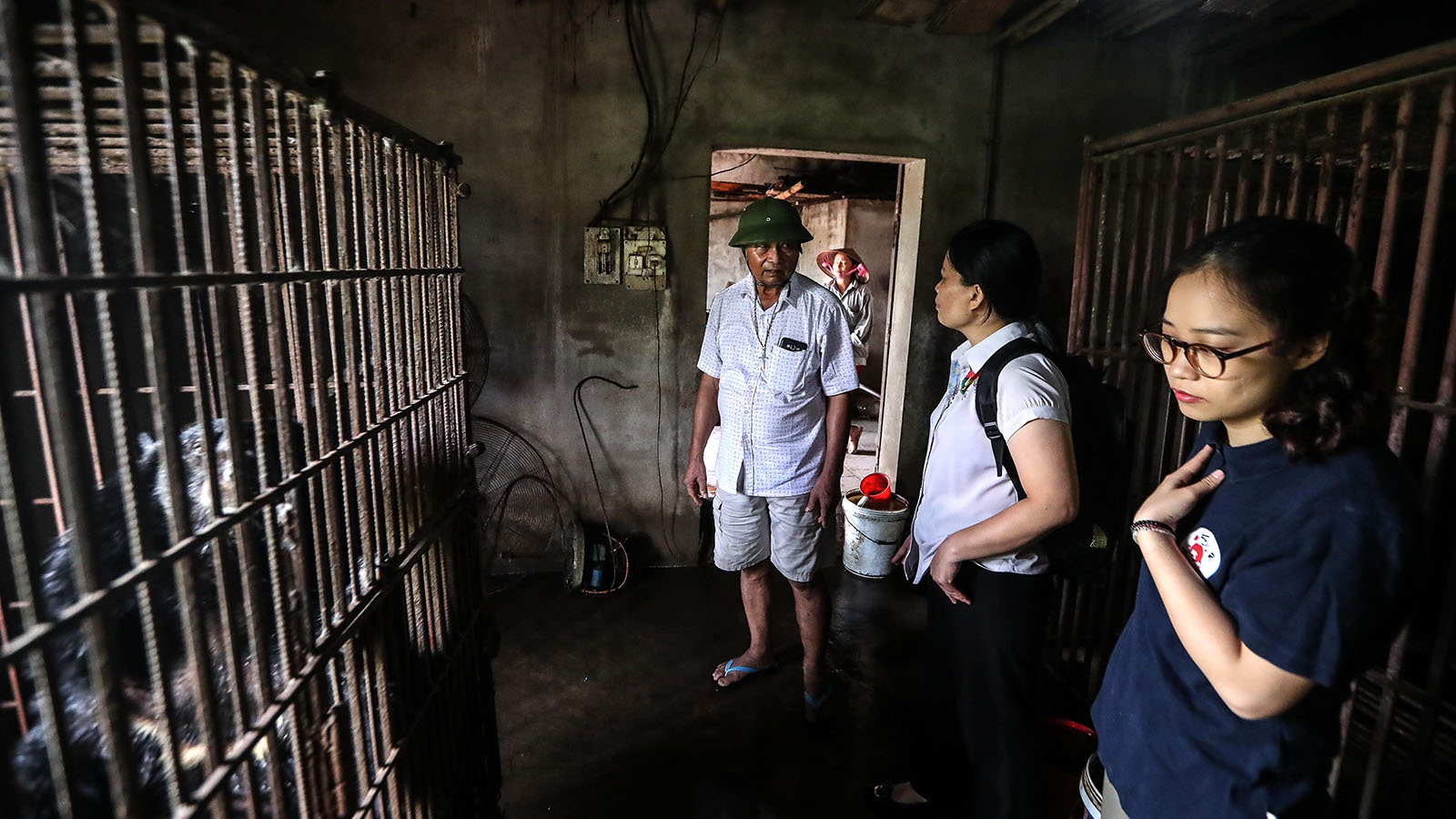 |
| Experts from the FOUR PAWS wildlife protection organization negotiate with the facility owner (L) to have the bears released. Photo: Tuoi Tre |
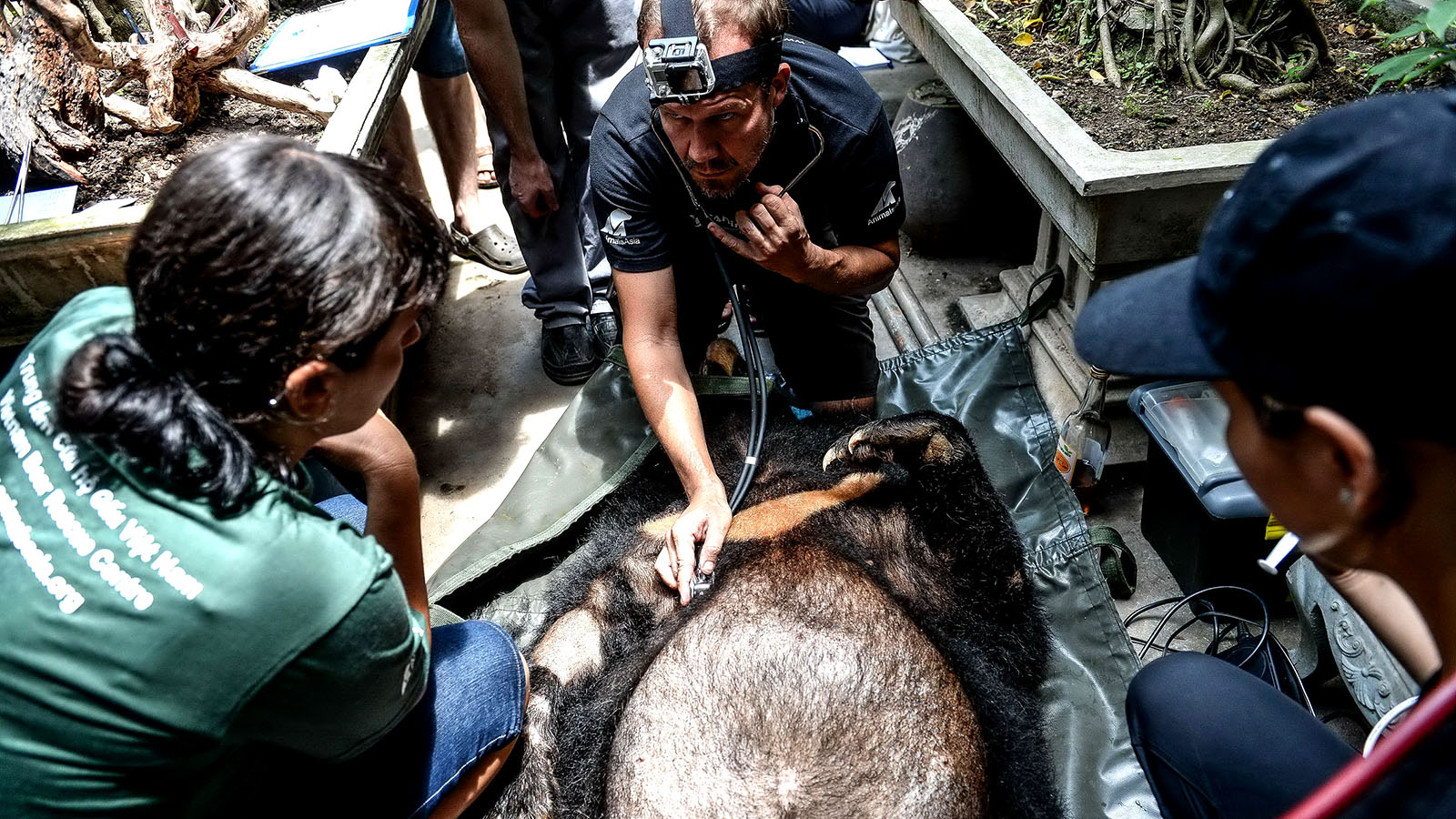 |
| Veterinarians examine the condition of a bear after it is released from captivity. Photo: Tuoi Tre |
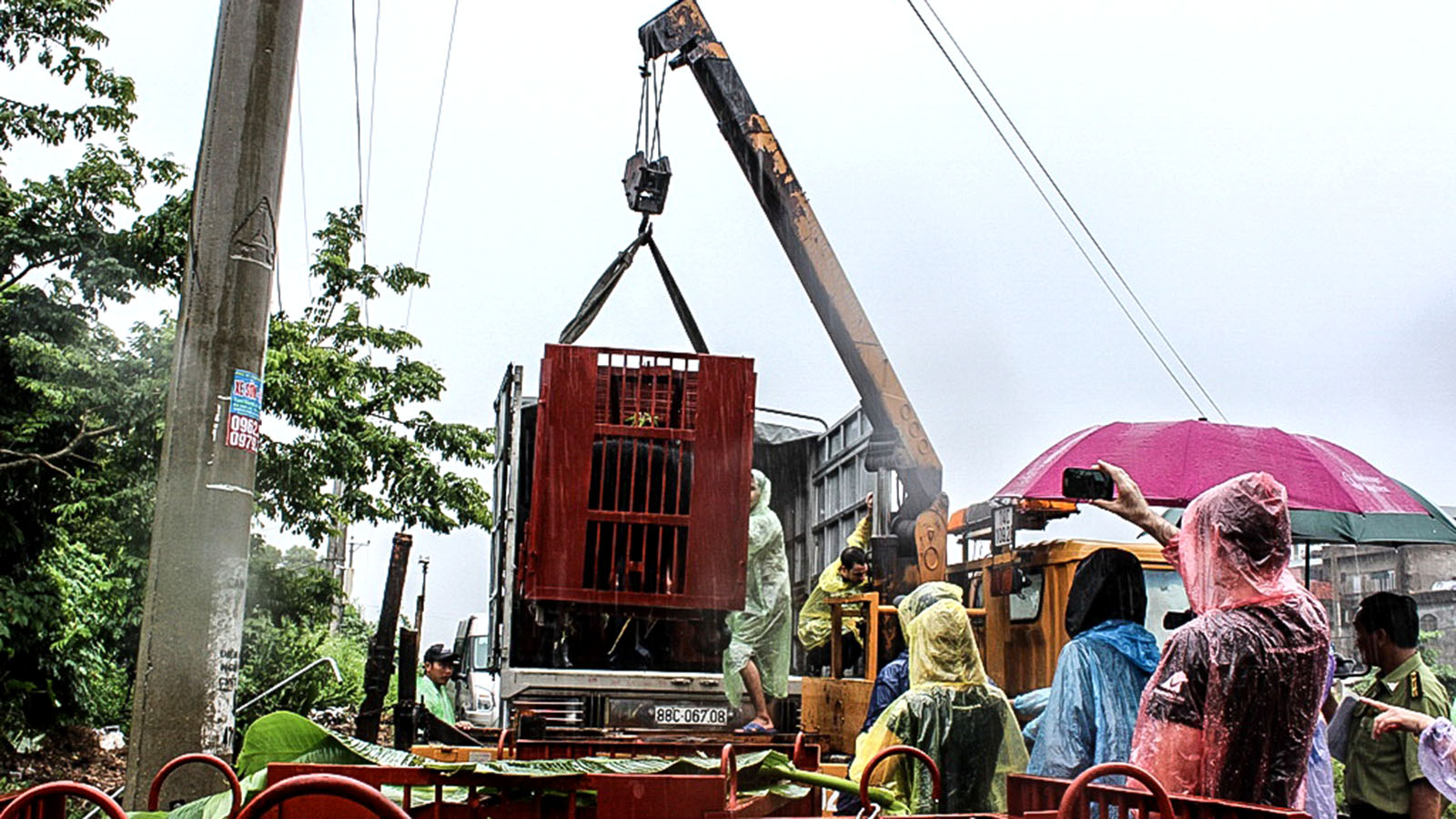 |
| A rescued bear is loaded onto a truck to be transported to a sanctuary. Photo: Tuoi Tre |
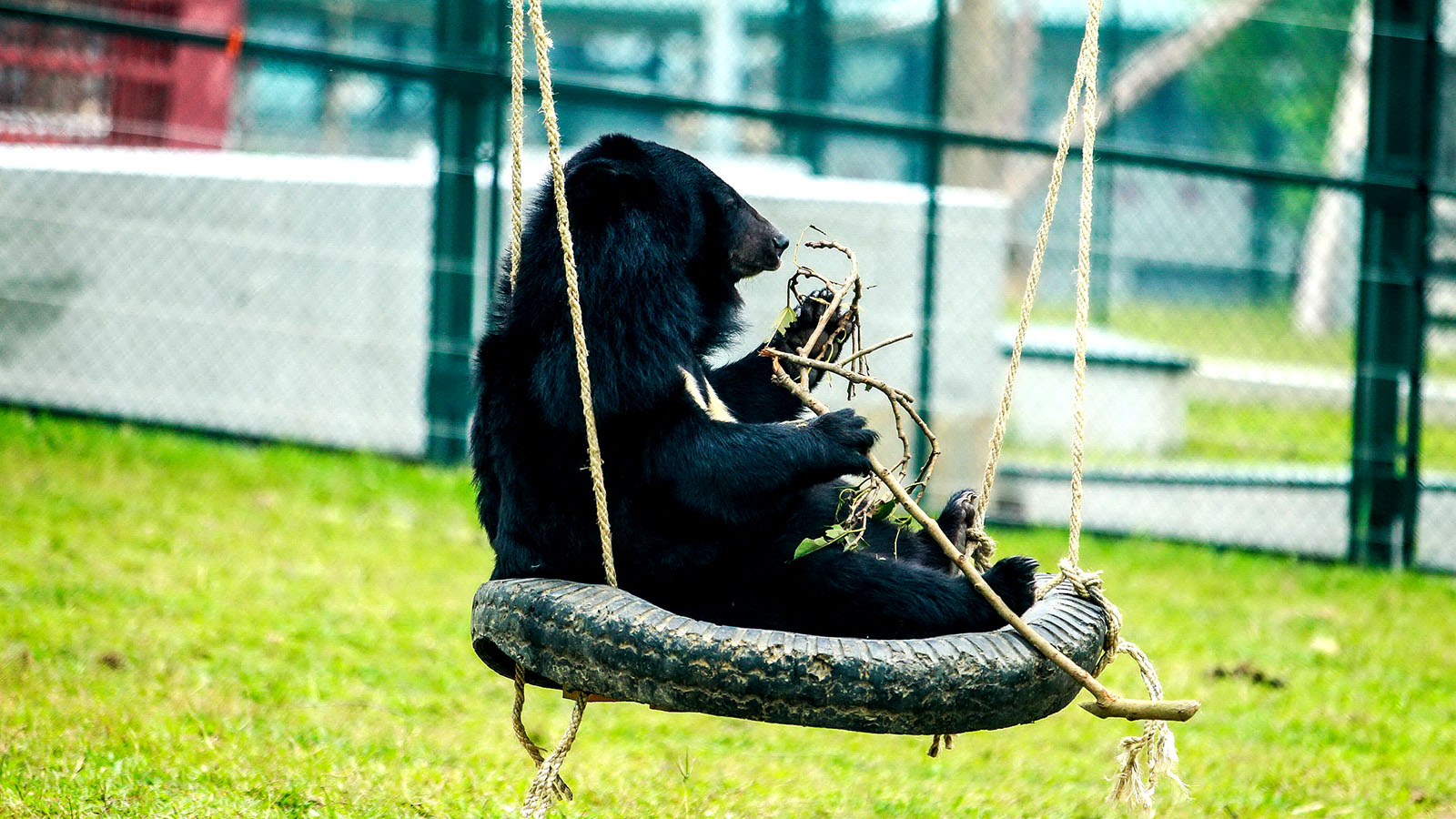 |
| A bear plays with a swing at Tam Dao Bear Sanctuary in Vinh Phuc Province. Photo: Tuoi Tre |
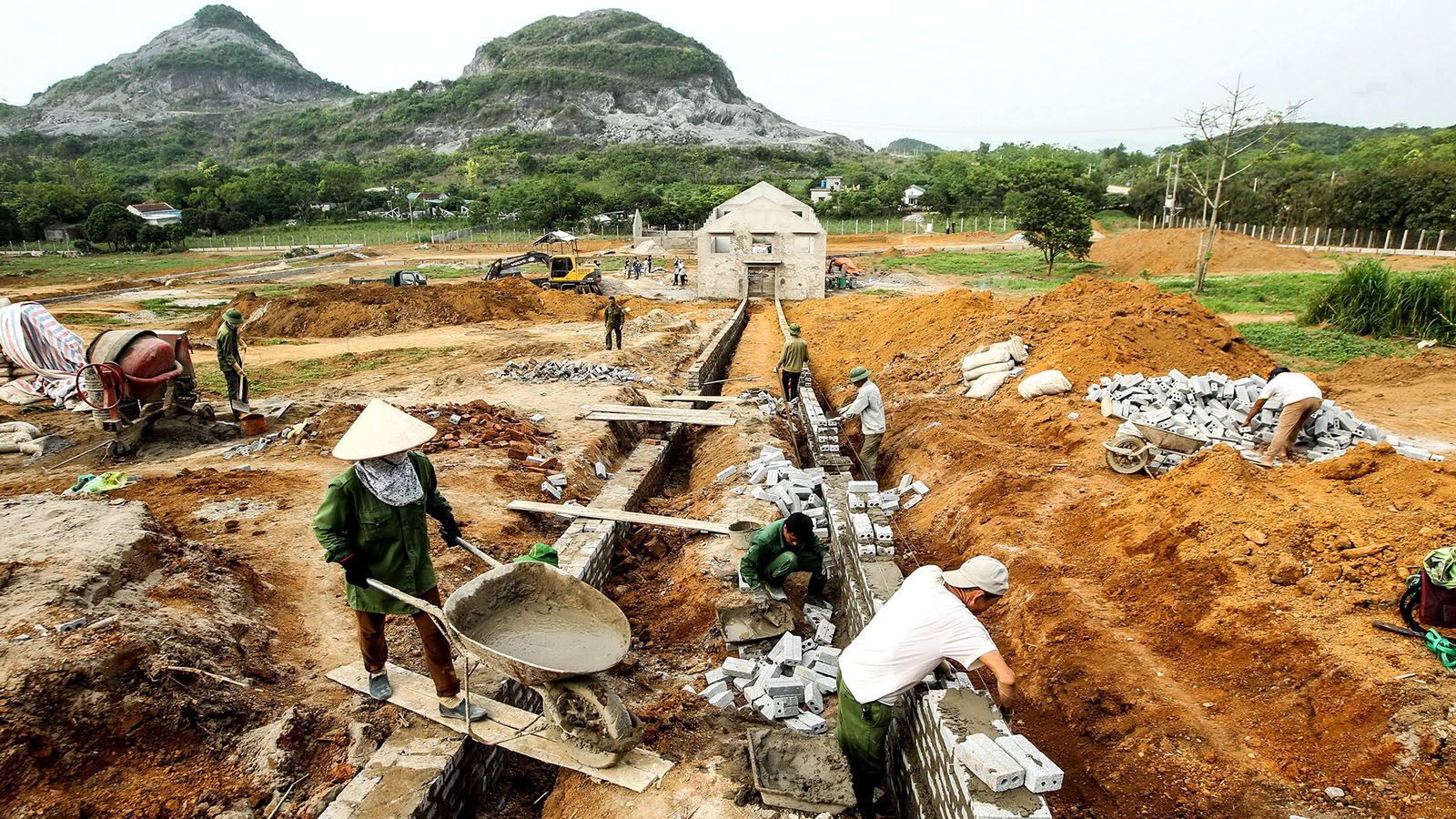 |
| A wildlife sanctuary is being built in Ninh Binh Province. Photo: Tuoi Tre |
Like us on Facebook or follow us on Twitter to get the latest news about Vietnam!



